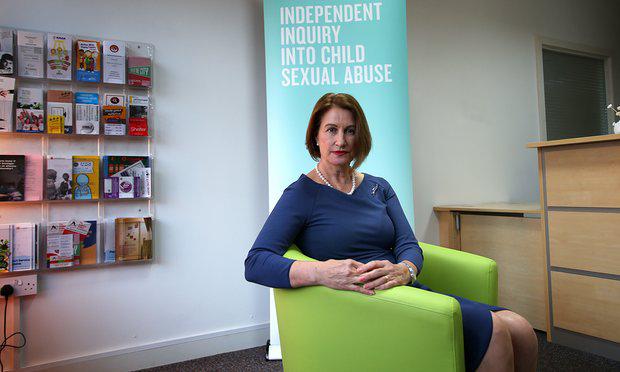|
Survivors must have a stronger voice in Goddard abuse inquiry
By Phil Frampton
Despite public inquiries over the last two decades, such as the Waterhouse inquiry and the Utting report into child abuse in care homes, the institutions of government have failed to deliver justice for survivors or tackle child abuse. And official inquiries have repeatedly absolved central government and the establishment from guilt. Yet there is still no indication of when the £18m Goddard child abuse inquiry will hear evidence regarding high-level abuse and coverups at Westminster. The inquiry’s truth project began this week but, sadly, the testimonies given to it by survivors will have no direct legal consequences and will only be used as ballast to the final inquiry report; a form of window dressing that may leave many survivors not only bound to secrecy about their testimony but also deeply distressed. In announcing the initial inquiry two years ago, the then home secretary, Theresa May, declared its remit was to look into institutional responses to all child sex abuse allegations, whatever the circumstances. With estimates of the number of child abuse survivors stretching into the millions, many thought this was a clear signal the government would try to bury the Westminster scandals by casting the net too wide. There were also indications the inquiry would have no powers to order key documents and witnesses. Only survivors’ brave and outspoken opposition prevented May’s appointment of Lady Butler-Sloss and then Fiona Woolf from heading the inquiry. Survivors’ groups such as Whiteflowers, to which I belong, organised vigils, protests and lobbies to focus the inquiry on the establishment and delivering justice for victims. Survivors’ efforts also forced the government to give the inquiry statutory powers and remove the arbitrary 1970 cut-off point for abuse cases. May promised she would “put survivors at the heart of the inquiry”. But the new inquiry head, Justice Lowell Goddard, declared from the outset that she considered that child abuse survivors lacked the objectivity to have a decisive say in her inquiry. The victims’ panel, set up to provide a survivor voice, has been sidelined into being mere window dressing. The only way for survivors to have a real say in the inquiry is as “core participants” who have the right to access inquiry papers and question witnesses. To date, Goddard has only permitted them to have involvement in small, splintered sections of the inquiry such as religious institutions and care homes. In contrast, she has given core participant status to precisely those organisations that so terribly failed survivors: the Home Office, the Department of Education, the Crown Prosecution Service and the police. All are expected to be involved in almost every section of the inquiry and build evidence in their defence. Whiteflowers’ legal representatives from Howe & Co and Mansfield Chambers have applied for core participant status for organised groups of survivors. The first application was scheduled to be heard in the Royal Courts of Justice this week. If survivors are permitted to ask hard questions of institutions, it may prove uncomfortable for the government, but will demonstrate a more convincing effort to ensure “no stone will been left unturned” as promised by David Cameron when he was prime minister. Without survivors being confident they have a strong, independent voice in the inquiry, it will inevitability be seen as another whitewash and a further abuse.
|
.
Any original material on these pages is copyright © BishopAccountability.org 2004. Reproduce freely with attribution.
